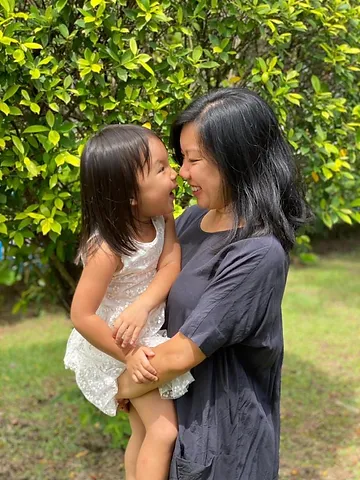I want to share a story about something that happened over the weekend which we’re calling ‘The Lost Ponies’ incident.
Over the weekend, we went out as a family to run an errand. Eloise (my 4-year old), brought along a bag full of her precious My Little Pony dolls. I had warned her that she needed to take care of her toys, that they were her responsibility. We decided to sit down outside a shop to eat a snack and placed the bag next to us on the bench. As you can guess from the beginning of the story, we left the ponies behind.
We only realised this the next day when she started looking for it. My heart sank as I realised that we had left the toys behind. My thoughts went straight to “This is a disaster. She’s going to have a full on meltdown!” and “I can’t believe we lost it, I spent so much on them as a birthday gift!” And so I reacted by yelling “That’s why we shouldn’t take things out! We need to take care of our things, now your ponies are gone!” My daughter was crying, but I was too angry to comfort her and was still in blame-mode.
Half an hour later and feeling pretty terrible about how I had reacted, I had some time to sit quietly and reflect on the situation. What outcome was I hoping for from the incident? How could I have handled things better?
Here’s what I came up with, and I think these are applicable to the many discipline scenarios that crop up every day.
- Self-regulate – I could have done what I needed to regulate myself. For me, this looks like slow and deep breaths and making sure to pause. Both of those steps would have given me time to get back into my right mind and more able to share my calm instead of spread chaos by exploding all over everyone.
- Have appropriate expectations – If I had thought it through, I would have been aware of the fact that I couldn’t expect my preschooler to take full responsibility for her belongings – it wouldn’t have been developmentally appropriate. It wasn’t fair for me to impose responsibility and not offer support by reminding her and keeping an eye on her things too.
- Set clearer boundaries – I had been feeling particularly tired that day. Instead of saying “Be responsible for your own things” which wasn’t a reasonable expectation I could have simply said no to bringing toys out because I wouldn’t be able to help take care of them.
- Invitation to problem solve – I could have treated my child as the competent human she is and invited her to problem solve with me. “I’m not sure where the ponies are, the last place we saw them was at the shop. Where do you think they could be? In the car? Shall we go and check? They could still be at the shop, shall we call them to check?”
- Consequences without shame – Finally, and this is a big one, I could have allowed the consequences without shame and supported any feelings. This would look like acknowledging the situation and any feelings that came up – “I’m so sorry the ponies have gone missing. You must be really sad because you loved those ponies” while NOT attempting to fix the situation with something like “Oh don’t worry, mommy will buy you new ones”. Because the truth is, responsibility for belongings is a skill that develops through many incidents like this. My role wasn’t to shame her to ‘teach her a lesson’ because she was already feeling awful about it. Neither was my role to rescue her from it by offering a quick fix. My job was to be present and support her through the moment.
I never want you to think that we’re some kind of parenting ‘experts’ who somehow rise above the daily challenge of raising small humans. Please know that we’re ALL learning, growing, trying to change patterns of behaviour that have probably been ingrained since childhood. We CAN reflect on things that happen in parenting and seek to learn from them, without beating ourself up or wallowing in guilt.
Did this story resonate with you? If you want to explore more ways to discipline without shame, our final workshop of the year ‘Connection before Correction: 5 Commonly Misunderstood Misbehaviours and How to Respond” is happening next Monday, 1 November, 10 am (MYT). Sign up here to join us as we unpack this really important topic.

